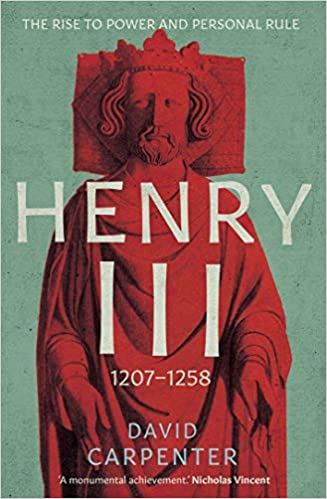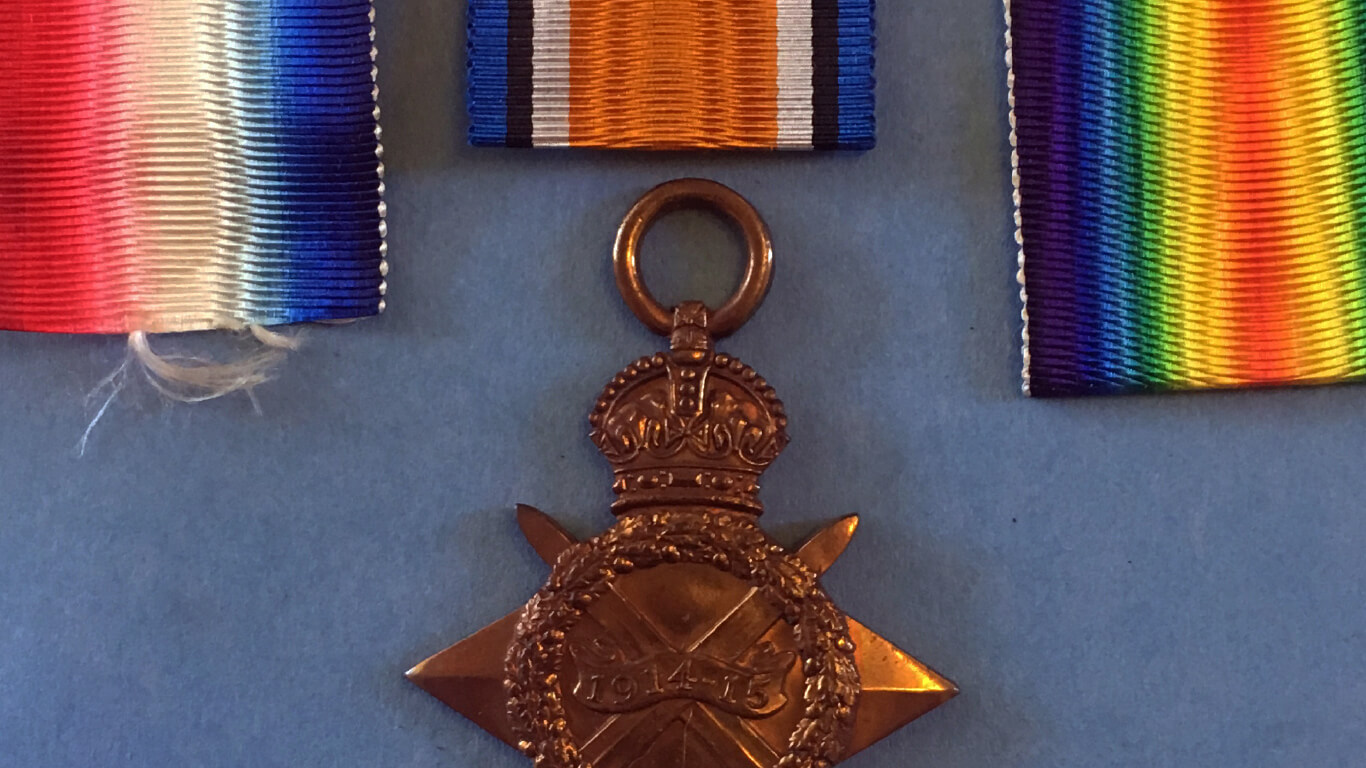
David Carpenter, Henry III 1207-1258 (Yale University Press, 2020)
For over thirty years, as part of its ‘English Monarchs Series’ exploring the history of the ‘longest permanent governing institution in Europe’, Yale University Press has published biographies of English kings and queens. These books are rightly considered to offer not only the best and fullest biographies of the men and women who have occupied the throne of England, but also a window through which we can explore the contemporary world in which these rulers lived. Despite being the fourth longest-serving monarch ever to have sat upon the English throne, King Henry III (1216-72), has always been something of an overlooked king, that is by the wider public at least. Certainly, kings such as Edward I, Henry V and Henry VIII are much better known and they found their biographers long ago (1997, 1992 and 1968 respectively).
Yet Henry’s reign was far from uneventful. As Professor David Carpenter notes in this magisterial new study, ‘no king of England came to the throne in a more desperate situation that Henry III’. Nor were his accomplishments inconsequential. When Henry died, his eldest son, Edward, was the first eldest son to ascend peacefully to the throne of England since the Conquest of 1066. Indeed, so secure was Edward’s position that he could spend a leisurely two years returning to England to claim his throne. It was during Henry’s reign that Magna Carta was firmly and finally established and also that Parliament as an institution which we might recognise, that is a regular assembly of lords, knights and, eventually, townsmen, with the power and confidence to refuse the supply of money to the Crown without redress of grievances, becomes clearly visible. Henry also worked hard to maintain long periods of peace with Scotland and France – a stark contrast to his son Edward I of course, and he was a pious and devout man who cared deeply for the welfare of his poor subjects. As Carpenter highlights, Henry would feed over 500 paupers a day, a charitable endeavour which, over the course of a decade, would have cost as much money as it cost to build a substantial castle.
Not that Henry was a reluctant builder himself of course. Indeed, his greatest legacy was that of his royal works. Henry was responsible for the construction and improvement of many fine buildings across the country. None, however, were and are more impressive than his beautiful abbey at Westminster, which Henry had built to serve as a royal mausoleum, a shrine to his patron Edward the Confessor, a fitting home for the precious relic of Christ’s Holy Blood, a centre for the royal dynasty of England, and as ‘a highly political building, reaching out to the realm, encouraging it to do Henry’s bidding.’ The relic of the Holy Blood might have failed to capture the imagination of people then and it has long since been destroyed, but otherwise the Abbey performs all the original functions which Henry wanted it to do more than 750 years after its consecration. Any English monarch should and would be proud to have left such a legacy for so long a period of time.
So why is Henry not better known and more celebrated for these achievements? Well, as Carpenter shows in this magnificent and penetrating biography, by the time that king’s leading magnates came to settle their accounts with Henry in 1258, forcing a revolutionary programme of reform upon him the like of which would not be seen again unto the Civil Wars of the 1640s, there were more than enough entries on the debit side of the ledger to cancel out the credits. True, Henry had wisely adopted Magna Carta as both a manifesto and touchstone of good and fair government, but there were frequent complaints that he did not do enough to ensure that it was observed in practice. His repeated refusal to reform his government was met by repeated refusals of Parliament to grant him taxation. Thus Parliament, and indeed a wider political community, developed very much in opposition to Henry and his policies rather than with him. In the same vein, in bestowing such liberal patronage on his royal relatives and favourites, Henry saw himself, with some justification, as a builder of aristocratic and diplomatic networks which would strengthen his kingship and bring honour and advantage to his English magnates. Unfortunately, the reality was rather different. Henry ended up creating factions among his nobles and alienating himself and his court from a wider public who resented their taxes being squandered for little obvious benefit to the kingdom. As we have seen in a previous blog, Henry had certainly alienated the Londoners often enough during his Personal Rule, and in 1258, just before Henry’s regime crashed around his ears, the king took his chance to settle scores against his political opponents in the city.
Fundamentally, Henry lacked political sense. He was, all too often, ‘abysmally unwise’. Carpenter is surely right to conclude that by agreeing to the Sicilian Affair, Henry entered into ‘the most ridiculous agreement ever made by an English monarch.’ True, Henry should be recognised as a rex pacificus who almost always sought peace rather than conflict, but on the occasions on which he did go to war, he did so inadequately and uncertainly, losing the county of Poitou in France for example. Perhaps the nadir in his military campaigning came in 1257 when Henry cut short a campaign in north Wales almost certainly, as Carpenter shows, so that he might return to Westminster to celebrate the feast of Edward the Confessor. Decisions such as this were met with incredulous derision by both noble and commoner alike. Nor did Henry’s devotion to the Confessor and his piety guarantee good relations with the Church. At times, for example with episcopal elections, Henry meddled when he should, perhaps, have left well alone; at other times, for instance when faced with oppressive demands of his Church by the papacy, he left well alone when he should have been much more visible and energetic. Well might Henry have reflected in 1258, if he had perception enough, that he had left undone those things which he ought to have done, and done those things which he ought not have done.
A lesser biographer would have let the flaws in Henry’s character lead to the conclusion that Henry was a man unfit to rule, agreeing with Henry’s brother-in-law and nemesis, Simon de Montfort, that it would have been better if Henry had been locked up like Charles the Simple. But Carpenter is too good to fall into that trap. What we have here is a balanced and judicious presentation of a man who, like all of us, had his good qualities and yet his failings too. To take just one example, as Carpenter notes, yes, compared to his father (King John) Henry was a ‘soft touch’ who failed to dispense patronage wisely, but then, Henry had not seen his father’s ‘cagy, canny and calculated approach to patronage’. And, besides, who was there to teach him? Other biographers too, would make facile and simplistic connections between events in the thirteenth century and those of the present day. For instance, some would lazily connect the developing sense of national consciousness felt by thirteenth-century Englishmen with contemporary political events. What Carpenter has produced, however, will last for decades and he is too good a historian for journalistic writing such as that.
So long and action-packed was Henry’s reign, that this new biography, in a first for the English monarchs series, will be published in two volumes. This first volume stops, it must be said, on something of a cliff-hanger, at the end of a brilliant final chapter filled with tension, with the revolution of 1258. This first volume is presented in thirteen chapters (unlucky for Henry?) along with a preface and a conclusion – which must, of course, only be a provisional conclusion with fourteen more years of Henry’s life and rule to be considered in the second volume. In the preface, which is very good fun, Carpenter’s humorous exploration of how he came to spend so much of his life studying Henry’s character and reign reveals that this will not be a dusty academic work. The first five chapters then provide a narrative, often beautifully written (‘Henry shrugged and the weight of John’s crimes fell from his shoulders’), which explores in compelling detail Henry’s life and reign, from his birth in 1207, through civil war and a period of minority rule, and then Henry’s assumption of full royal authority and the turbulence at the beginning of the 1230s, when Henry put in a ‘dismal’ performance as king and two rival factions battled for the royal ear. This first section concludes with Henry’s defeat on military campaign in France in 1242-3.
The next two chapters, thematic studies of Henry’s piety and court, offer a notable change in pace. It is never easy for the biographer to get to the true personality of the medieval subject. We do not, for example, even have a realistic likeness of Henry III. That said, we are fortunate to have the Chronica Majora of Matthew Paris, the greatest of all medieval historians, in all its wonderful detail. Many of Matthew’s beautiful drawings have been reproduced in this biography in full colour, and this is the first book in the English Monarchs series to have been published with colour illustrations. This is a very welcome development indeed. In this section, Carpenter provides us with an intimate and lively insight into Henry’s character. My favourite sections within these chapters were those which considered Henry’s homes and his itinerary, by far the majority of which is fashioned from the bureaucratic records produced by Henry’s royal government. Many might consider the letters and accounts of the England’s formidable bureaucracy to be dry as dust. They would be well served to read these sections and think again. Carpenter has shown here, in the same way that Michael Clanchy did in his incomparable Memory and Written Record, how they can be exploited to splendid effect. The final six chapters then resume the narrative, taking us through the difficulties faced by Henry, many of which were of his own making of course, and his failure, for the most part, to rise to those challenges which were not.
On first picking up this book, I was unconvinced by the need for it to be in two volumes. Having reached the end, I cannot think of anything that should have been left out. Henry has waited a long time for his biographer, but it has been worth the wait. It is just a shame that we must wait a little while more for the second volume.
Henry III is available to purchase here.








No Comments